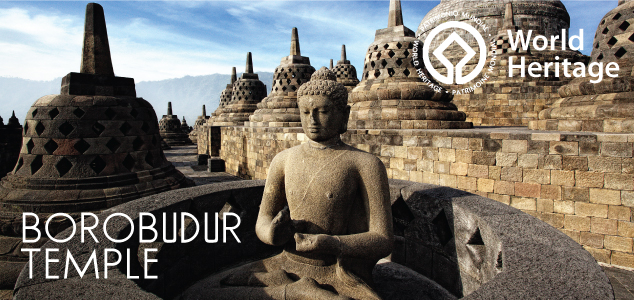Embracing Diversity: The Beauty of Religious Pluralism
Indonesia is a country well known for its ability to embrace different religions. Clarissa Tanurahardja writes about the beauty of religious pluralism and why it is something to celebrate.

Borobudur Temple located in Central Java is the world’s largest Buddhist temple. Photo: http://www.kiostix.com/
In Indonesia, the constitution ensures that each of its citizens has the freedom of worship, according to his or her own belief or religion. It recognises six religions: Islam, Catholicism, Protestantism, Buddhism, Hinduism, and Confucianism.
Personally, I believe each religion is good and by learning each life lesson from different religions it makes me appreciate the diverse way of people in honoring God. I love Indonesia’s philosophy of “Unity in Diversity” (Bhinneka Tunggal Ika) and the beauty of pluralism that it teaches.
Although the majority of Indonesians are Muslims, we can see the influence of European and Dutch colonialism through the presence of Christianity in Indonesia, around 23 million people are Christians.
Growing up as Catholic in Indonesia, I love the principles of Christmas spirit to share happiness through caring with others as your own family, and I believe in saying that Pope Francis said, “Choose the ‘more humble’ purchase . Certainly, possessions, money, and power can give a momentary thrill, the illusion of being happy, but they end up possessing us and making us always want to have more, never satisfied. ‘Put on Christ’ in your life, place your trust in him, and you will never be disappointed.”

Santo Josef Cathedral located in South Pontianak is the largest Catholic Church in Indonesia. Photo: Tim Flicker
After the fall of Suharto, Indonesia’s second President, between 1998 and 2004, Indonesia encountered numerous incidents of violence, which were labeled as “religious conflicts”. Despite that, these conflicts couldn’t be categorised as religious only because the impact of Suharto’s fall in New Order era had caused strong competition for social, political, and economic power within the region and also amongst group that share same religion. However, nowadays in Indonesia, most Muslims and Christians in Indonesia live in social harmony.
Besides Islam and Christianity, Hinduism is the third largest religion in Indonesia, which is comprised of four million people. The majority of the Indonesia’s Hindu society resides on the island of Bali.
Another important religion in Indonesia is Buddhism, which is the second oldest religion in Indonesia, which arrived in the 6th century during the period of trading on the silk road amongst Indonesia and India. The Borobudur temple, which is the largest and the oldest Buddhist temple in the world is located in Central Java and categorised as UNESCO World Heritage site.
In conclusion, Indonesia has evolved and moving positively towards religious pluralism, despite many challenges in the past. As Mr. Joko Widodo said in his speech during Christmas celebration in 2015, “Christmas reminds us to bring fundamental changes in living as Indonesian society. We need Indonesian citizens who are independent, dedicated in implementing the good values of religions, having good manners, and having high level of tolerance and open-mindedness between one another.”

